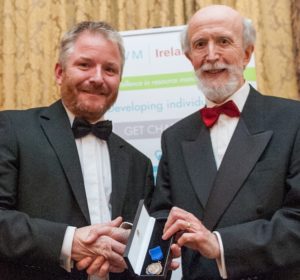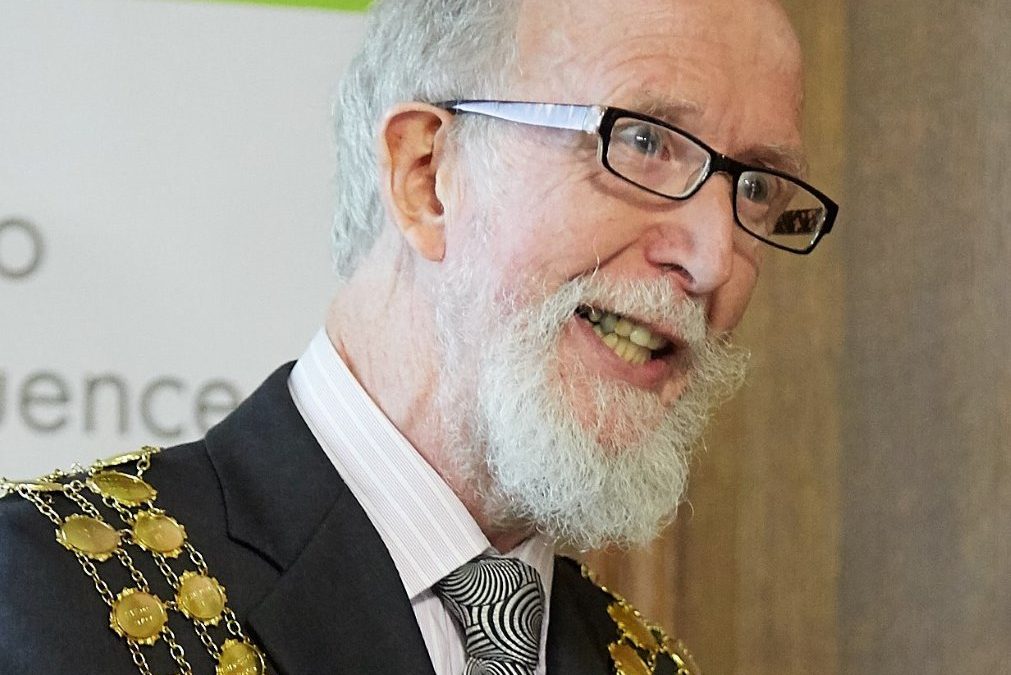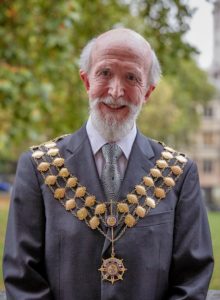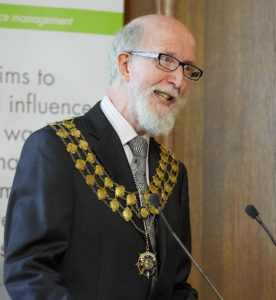19 December, 2018 | Publication, Resource and waste management
Professor David C. Wilson’s final contribution to the CIWM Journal took the form of an interview in which he looked back on his Presidential year. This web-posting also includes an index of and links to his monthly columns for the CIWM journal, many of which were ‘think-pieces’ on issues in which he has been involved for years or even decades. Among the questions covered in the final interview were: has any topic dominated the year (yes, plastics – both marine plastics and the ‘China ban’); and what would be your advice to Enda Kiernan and future CIWM Presidents (‘Be true to yourself’ – which the editor also used as this month’s headline).
https://www.babyscanclinic.com/blog/order-generic-levitra/
Interviews and DCW’s theme for the year:
- Dec 2018: ‘Be true to yourself’. DCW looks back on his year as president. PDF attached at end of post.
- Dec 2017: A key utility service. DCW revisited his Presidential address to further explain his key themes for the year ahead. The overarching theme was to have solid waste management recognised as an essential utility service.
- Nov 2017: One small step. The editor Ben Wood introduced DCW, his story in waste and his hopes for his Presidential year. PDF attached at end of post.
Plastics:
- Oct 2018: Plastics – diabolic or fantastic? How to respond to the crisis of plastics entering our oceans? Which plastic uses are diabolic and which fantastic?
- Jun 2018: How to influence people. DCW reported on CIWM’s role in influencing the UK’s initiative on marine plastics which was announced at the Commonwealth Heads of Government Meeting in London in April 2018.
- Apr 2018: China – coming full circle. In the wake of the current China-induced recycling crisis in the West, DCW gave his personal perspective on China’s journey in waste management and recycling over the last 30-40 years and moving forward…
- Feb 2018: Turning the tide. Where do plastics entering the ocean come from, and how do we turn the tide?
Promoting waste reduction and recycling:
- Sep 2018: Charge! DCW reflected on the challenges of devising the right policies to charge households for solid waste management services
- May 2018: Revaluing recycling. DCW argued that we need to rethink recycling if it is to become sustainable and proposed a framework for doing so, by considering the embodied social, environmental and technical values alongside the market price.
- Jan 2018: Inspiring reuse. DCW showcased the five inspiring projects shortlisted for Best Reuse or Waste Prevention Project at the CIWM Sustainability and Resource Awards 2017.
Waste and climate
- Jul 2018: Don’t waste our climate. DCW made the case for resource and waste management as an entry point to achieve significant climate mitigation. The article was subsequently re-published by the National Solid Waste Association of India (NSWAI) in their member journal Waste Monitor in July 2019.
- Website May 2018: Uncontrolled burning of solid waste as a significant contributor to climate change. DCW reported on current research at Imperial College London.
Tackling the global waste crisis
- Website Nov 2018: DCW awards his Presidential Medal to Mike Webster, Founder and CEO of the charity Wasteaid.
- Website Oct 2018: Tackling the global waste crisis through community waste management. DCW reported on two papers in the peer-reviewed literature, which follow-up on the CIWM-Waste aid toolkit Making Waste Work.
- Dec 2017: A key utility service. A key theme for DCW’s Presidential year was to highlight the global waste crisis, the 3 billion people who lack access to basic SWM services.
- Website Nov 2017: DCW launches toolkit for community waste management. Introducing DCW’s Presidential Report, the CIWM-Wasteaid Toolkit Making Waste Work. The Toolkit includes a dozen How-to-do-it Guides to enable local entrepreneurs to implement simple technologies using organics and low-value plastics in the waste.
Other DCW areas of interest or ‘hobby horses’:
- Aug 2018: Hazardous waste – plus ça change. DCW reflected on 40 years of involvement with hazardous waste policy, and concluded that the current and future challenges identified by CIWM’s Hazardous Waste Special Interest Group have changed relatively little over the years.
- Mar 2018: Let’s skip “the tip”. DCW argued that terms such as “the tip”, “rubbish”, “refuse” and arguably “tipping”, have no place in the vocabulary of the professional waste and resource manager.
14 November, 2018 | Awards, Resource and waste management

DCW hands over his CIWM Presidential Medal for 2018 to Mike Webster
https://www.babyscanclinic.com/blog/buy-cialis-tadalafil-online-20-mg/
At the CIWM Presidential Dinner at the Intercontinental Hotel in Dublin, after the inauguration of Enda Kiernan as the next President, DCW’s last act as the retiring President was to award his CIWM Presidential Medal for 2018. The recipient was Mike Webster, the founder and CEO of the new charity Wasteaid, which is working directly with local communities in some of the least developed countries to tackle the global waste crisis. The text of DCW’s speech is reproduced below.
‘Being able to award the President’s Medal is one of the perks of being President, and indeed the only thing that is expected of you after you hand over the chain…. The standard advice is to give it to someone who has particularly helped in my career or in my Presidential year.
I started out in 1974, so my early influencers are now either quite old or have already moved on to the great Circular Economy in the sky.
Looking back on my career, one of the aspects I take most pride in is the number of (then) young people whom I have either brought into the resource and waste sector, or to whose development I have made some contribution; and who I hope won’t be offended if I refer to them, tongue in cheek as, at least in part, my “protégées”.
I am also aware that, in the twilight of my own career, I am leaving behind much unfinished business. So, my thoughts here have gone to one of those protégées, whom I believe can take forward, and make a difference in, an area that is close to my heart. I devoted at least 20 years of my life to working with international organisations, national governments and large cities to develop integrated and sustainable waste management systems.
I have recently drawn attention to the global waste crisis, the more than 3 billion people worldwide who still lack access to basic solid waste management services, which reinforces the comparative failure of such top down approaches; yes, we have made some progress, but it is painfully slow, and corruption often impedes progress. So, I have come to the realisation that, in parallel, we also need to work from the bottom up.
This person is already making an impact, by opening-up opportunities for you and me, as individual resource and waste management professionals and as companies, to get involved and to make a real difference by helping local communities in some of the poorest countries to help themselves by making products to sell locally from the low value organics and plastics in the waste – thus helping to solve their local waste problems, keeping plastics out of the oceans AND giving themselves sustainable livelihoods to feed and educate their families.
This person has done this at considerable personal sacrifice, giving up a secure job to set up a new charity, initially drawing little or no salary while their children were still very young. The charity is now taking off, helped in part by the success of the CIWM-sponsored Toolkit; income has doubled this year, and looks set to triple that figure next year to more than a quarter of a million pounds.
The winner the 2018 CIWM President’s medal is Mike Webster, the Founder and CEO of our sector’s very own charity, Wasteaid.’
14 October, 2018 | Publication, Resource and waste management
According to the UNEP and ISWA’s Global Waste Management Outlook (GWMO), three billion people lack access to basic solid waste management (SWM) services; addressing this global waste crisis would not only vastly improve their lives but also halve the weight of plastics entering the oceans. Professor David C Wilson and Mike Webster of Wasteaid made the case earlier this year, in an open access editorial in the ISWA journal Waste Management & Research, for community waste management as a ‘bottom up’ approach, to run in parallel to traditional ‘top-down’ approaches led by donors and governments.
Community waste management aims to help local communities in the poorest countries, where the local authority often has no funds to provide a SWM service, to tackle the problem themselves through the resource value in the wastes. If, for example, food wastes or low-value plastics are kept separate, they can be turned into new, useful products. With simple tools and the right knowledge, people can become self-employed recycling entrepreneurs, providing a very valuable service for the health and wellbeing of their community, and the whole planet – as well as reducing poverty and creating sustainable livelihoods.
One of the gaps identified by the GWMO was for practical guidance on such low-cost ‘waste to wealth’ technologies which involve minimal capital investment and make products to sell in a local market. DCW’s CIWM Presidential Report aimed to plug that gap: Wasteaid prepared a Toolkit, including a dozen How-to-do-it Guides for simple technologies using organics and low-value plastics.
While preparing the Toolkit, we identified a parallel requirement, for the scientific underpinning of some of the technologies. This month sees the publication of a paper on optimising the technology for producing plastic bonded sand blocks, for use e.g. as paving slabs, from the low value LDPE film plastic, which is a major problem even in the least-developed countries. Our team at Imperial College London was led by Professor Chris Cheeseman, with the laboratory research carried out by Alexander Kumi-Larbi Jnr and Danladi Yunana. The technology was developed by another co-authors, Pierre Kamsouloum, a self-taught entrepreneur from the Cameroun.
29 December, 2017 | Publication, Waste Management
In his first monthly column in the CIWM Journal as CIWM President, Professor David C. Wilson has revisited his Presidential address. His overall theme for the year is solid waste management as a key utility service, underpinning modern society. Within that three strands are to avoid complacency when it comes to protecting public health and the environment; the continuing move from the linear ‘make – use – dispose’ model to a more circular economy; and the global waste crisis, with more than 3 billion people lacking access to a basic solid waste management service.
https://corazoninc.com/propecia/
DCW writes: ‘“Let us work together to promote the fact that solid waste management is one of the essential utility services underpinning our society. Let us ensure that the regular, daily delivery of that service to protect public health and the environment is not undermined, either by on-going cuts in local authority spending or by deregulation following Brexit”. And again: “It is simply unacceptable that 40% of the World’s population lack this basic utility service that we take for granted. We need to ensure that waste collection is extended to all people, and that uncontrolled dumping and open burning is eliminated.”

18 October, 2017 | Awards, Resource and waste management

Professor David C Wilson following his inauguration in Westminster as 2017-18 CIWM President

Professor David C Wilson giving his inauguration speech as CIWM President 2017-18
https://samtech.edu/accutane-treating/
Professor David C. Wilson has been inaugurated as the 102nd President of CIWM, the UK and Irish professional body for resources and waste, at a reception in London. He described solid waste management as one of the key utilities and said that as public sector budgets continue to come under pressure, “we must not lose sight of where we have come from, that the service exists first and foremost to protect public health”. He highlighted the ‘global waste management emergency’, where 40% of the World’s population lacks this basic utility service. He also launched his Presidential report, Making Waste Work: A Toolkit, prepared by WasteAid UK and aimed at helping unserved communities in the least developed countries to help themselves, by developing self-sustaining businesses making useful products for the local market from the resource value in their waste.
Outlining the importance of legislation in the substantial progress that has been made in the sustainable and safe management of waste since the early 1970s, Professor Wilson added that there can be no softening of the regulatory framework. “Two major priorities for CIWM in the UK are to ensure that following Brexit we have continuity of the strong regulations on which the very existence of the waste and resources industry depends, and the continuing fight against waste crime.”
While continuity is important on one hand, DCW went on to talk about the step change in approach to resources and waste that is happening, and he called for a “necessary parallel focus on the 3Rs – reduce, reuse, recycle – and on the shift from the linear model to a circular economy where resource efficiency and productivity is key”. An integrated and inclusive approach will be needed, he said, as well as a balanced set of policy drivers.
Professor Wilson highlighted that, despite the progress that has been made, more than 2 billion people have no waste collection at all and the waste of over 3 billion people is either dumped or subject to uncontrolled burning. This matters: for example, children growing up in households without waste collection have double the rate of diarrhoea and six times the rate of acute respiratory infection; and open burning of waste could double the current, official IPCC estimates of the contribution of methane emissions form landfill of waste to global warming. However, he also sees this ‘global waste management emergency’ as an opportunity for the international community. “If we can increase the proportion of existing international development finance being directed at SWM from the current, fairly derisory, 0.3% to just 3% up to 2030, as recommended in the GWMO, then not only can we extend waste collection to all and eliminate open dumping and burning of waste, but due to the cross-cutting nature of waste management, we can also make progress against no fewer than 12 out of the 17 UN Sustainable Development Goals agreed by world leaders to achieve a sustainable future for our planet.”
Press coverage:
Resource: Community waste schemes, the global waste crisis, domestic issues, DCW’s life in waste.
Waste Management World: Waste as a utility, domestic issues, the global waste emergency.
Letsrecycle.com: Global waste emergency, community waste toolkit
Recycling Waste World: Community waste toolkit
CIWM-journal: Waste as a utility, domestic issues, the global waste emergency, community waste toolkit
Interview with DCW in CIWM Journal:



